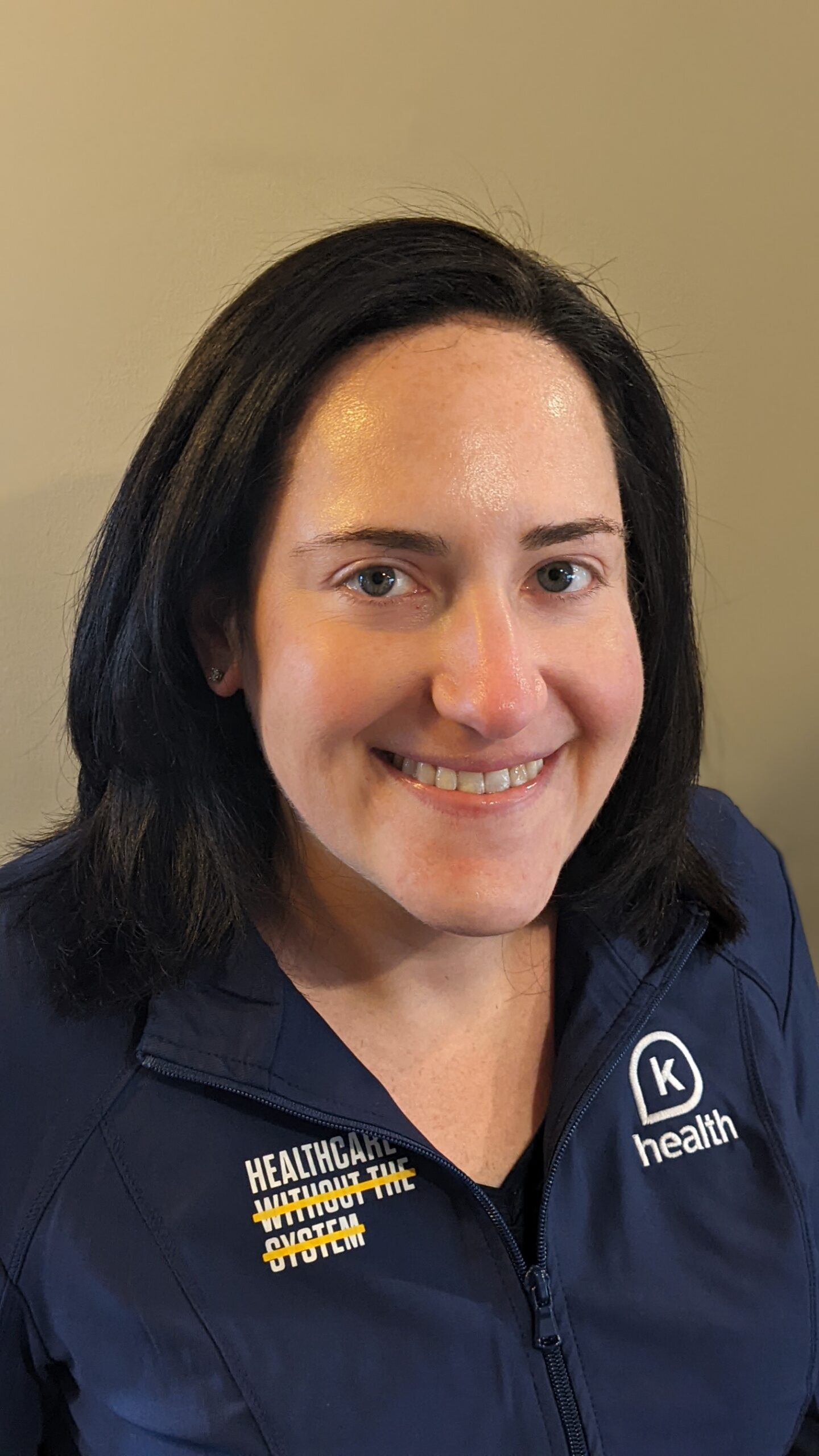If you menstruate, chances are you’re more than familiar with the emotional symptoms that can occur before or during your period, like increased feelings of anxiety, depression, and sensitivity.
Certain physical symptoms are fairly common too, including abdominal cramps, tender breasts, and food cravings.
In addition to all of those changes, some people may also notice certain gastrointestinal changes around the time of their period, like diarrhea or constipation.
Experiencing an increase in diarrhea, constipation, bloating, and other gastrointestinal changes around your menstrual period is very common.
Though experts are still investigating why these changes happen, some believe that fluctuating hormones and other changes in relation to menstruation may make these symptoms appear in some people.
Understanding the possible causes of your gastrointestinal changes can help you determine whether certain lifestyle or diet changes in response to your cycle may help.
But if your gastrointestinal and other symptoms make it difficult to carry on with your daily tasks and responsibilities, speaking with a healthcare provider can help to find you the right treatment plan.
Periods and Bowel Movements
Experts are still investigating the relationship between menstruation and gastrointestinal symptoms and changes.
However, evidence shows that many people with uteruses experience an increase in gastrointestinal (GI) symptoms in the weeks leading up to menstruation and during menstruation.
GI symptoms can vary among individuals, but some of the most commonly experienced around menstruation include:
- Abdominal pain
- Diarrhea
- Constipation
- Nausea
- Vomiting
- Pelvic pain
- Bloating
Additional studies suggest that those with irritable bowel syndrome (IBS) may experience worsened GI symptoms right before their period and during menstruation when compared to those without IBS or an inflammatory bowel disease (IBD), like Crohn’s disease.
Symptoms of IBS can include:
- Diarrhea
- Constipation
- Pain in the abdomen
- Bloating
- Whitish mucus in stool
Though experts are still unclear why people with IBS may experience worse GI symptoms during or before menstruation, one theory suggests that it’s due to an increase in prostaglandin levels during menstruation.
Unfortunately, it’s unclear exactly what causes IBS, but speaking with a provider about your history and symptoms can help them to make appropriate recommendations for lifestyle changes, medicines, and other therapies that can help.
In addition to having IBS, there are other possible links between certain conditions and increased GI symptoms around your period, which we’ll cover next.
Increased muscle contractions
Elevated prostaglandin levels can affect muscle contractions in the uterus and abdomen.
Specifically, prostaglandin production in the uterus during the premenstrual period may indirectly trigger an inflammatory response that can cause pain and abnormal uterine contractions.
Though experts aren’t sure whether prostaglandin production in the gut affects prostaglandin production in the uterus, it’s clear that prostaglandin production in the gut can lead to increased pain and diarrhea.
Increased progesterone
Hormones normally fluctuate throughout the menstrual cycle.
After ovulation, progesterone levels rise for about five days before lowering again right before your period.
During this part of the luteal phase, an increase in progesterone levels may cause slower digestion, which can cause constipation in the days leading up to your period.
Dietary changes
Increased progesterone can also cause premenstrual cravings.
Premenstrual cravings can vary, but some of the more common cravings include cravings for food that are high in fat, salt, and/or sugar.
Eating large quantities of these types of foods can cause temporary changes in your stool, including constipation, foul-smelling stool, bloating, and gas.
Increased stress and anxiety
On their own, stress and anxiety can cause diarrhea and constipation, thanks to what some people refer to as the gut-brain axis.
However, every person may experience a different GI symptom in response to their psychological state.
For example, some people may experience anxiety-induced diarrhea, while others may get constipated in times of stress or high anxiety.
Evidence also suggests that people who experience emotional symptoms in relation to their menstrual period, like depression, anxiety, or fatigue, may be more likely to experience GI symptoms as well.
Diarrhea and Constipation
Diarrhea and constipation are two common GI symptoms that can occur during the premenstrual or menstrual period.
Fluctuating levels of estrogen, progesterone, and prostaglandins are likely part of the reason some people may experience diarrhea, constipation, or both leading up to or during their menstrual period.
Though the timing of these symptoms varies for each person, constipation can be a common symptom during the premenstrual period, while diarrhea is more commonly experienced at the start of the menstrual period.
Talk to a doctor from home.
Start my visitTips for Dealing With Period Poops
Experiencing GI symptoms like constipation, diarrhea, abdominal pain and cramps, or bloating around the time of your period is very common.
Understanding that these symptoms are possible and common is the first step to acknowledging any changes you may experience during this time.
Though you cannot always prevent GI symptoms from appearing before or during your period, knowing which symptoms your body cycles through can help you to make certain changes that can help.
For example, if you tend to get constipated during the luteal phase in the week or weeks leading up to your period, increasing your intake of fiber through foods or certain supplements may help you to have more regular bowel movements.
Alternatively, if you get diarrhea around the start of your period, eating less fibrous foods during these days may help to counteract your GI symptoms.
If your GI symptoms cause you significant pain or disrupt your quality of life in any way, it’s a good idea to reach out to your healthcare provider for help.
Discussing your symptoms with them can help them to make certain medication or lifestyle recommendations that may help you to feel more comfortable throughout your menstrual cycle.
When To See a Doctor
Having a period doesn’t mean you have to suffer.
If you regularly experience any symptoms related to your period that cause you significant pain, discomfort, or distress, reach out to a provider whom you trust to ask which treatments or lifestyle changes can help.
How K Health Can Help
Did you know you can get affordable primary care with the K Health app? Download K Health to check your symptoms, explore conditions and treatments, and if needed text with a provider in minutes. K Health’s AI-powered app is based on 20 years of clinical data.
K Health has strict sourcing guidelines and relies on peer-reviewed studies, academic research institutions, and medical associations. We avoid using tertiary references.
-
Gastrointestinal symptoms before and during menses in healthy women. (2014).
https://www.ncbi.nlm.nih.gov/pmc/articles/PMC3901893/ -
Physiology, progesterone. (2021).
https://www.ncbi.nlm.nih.gov/books/NBK558960/ -
Symptomatology of irritable bowel syndrome and inflammatory bowel disease during the menstrual cycle. (2015)
https://pubmed.ncbi.nlm.nih.gov/25788484/ -
The gut-brain axis: interactions between enteric microbiota, central and enteric nervous systems. (2015).
https://www.ncbi.nlm.nih.gov/pmc/articles/PMC4367209/

 Medically reviewed
Medically reviewed
